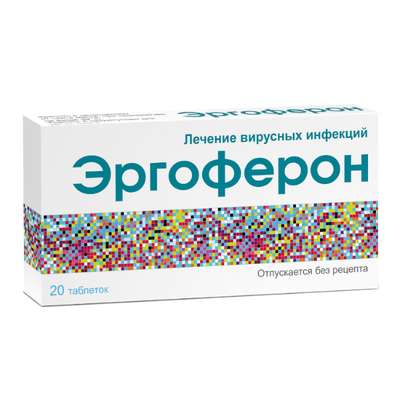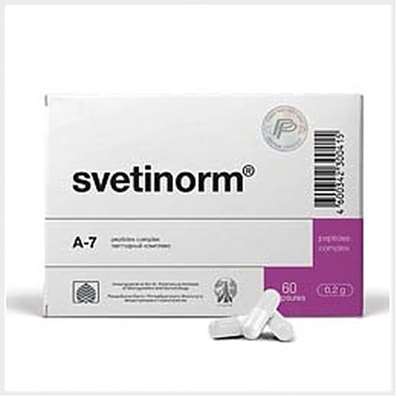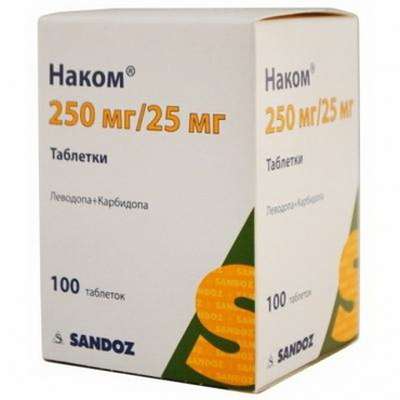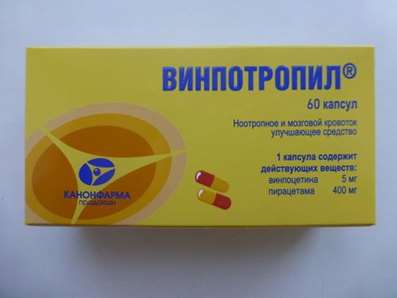Cortisol General Information
09 Apr 2017
About cortisol, as an antagonist of all anabolic hormones
Every bodybuilder knows that cortisol is bad. At first glance this seems logical, but only at first glance. Cortisol - a hormone that is produced in the outer layer of the adrenal glands under the influence of the hormone ACTH. It belongs to the class of glucocorticoids. This is collectively the name of the subclass of hormones in the adrenal cortex.
Generally speaking, the adrenal glands function as a "stress regulator". And this regulation is provided by the chain: "Hypothalamus-pituitary-adrenal glands". The uppermost link, the hypothalamus, creates a stable connection between the nervous system and the hormonal response in the body.
Adrenaline is also known as Epinephrine, it is a well-studied stress hormone that is produced by the adrenal medulla. Like the main hormone of our today's article, Adrenaline is a stress hormone on the body. It is he and several other hormones that are responsible for the reaction of the body to stressful situations.
Cortisol has earned its "negative" reputation due to one simple fact - it is a catabolic hormone. In our body, processes can be divided into anabolic, when something is created and catabolic, when the body destroys something.
And yes, cortisol is a catabolic. And catabolism is bad. But you still understand - what we have now written about the anabolic - a catabolic is a very very simplified scheme. In a broad sense, this is correct. But in our case, this approach is erroneous. And why? Yes, everything is simple - your body is constantly building something and at the same time destroys it.
Simply put, if the Synthesis of Protein> Decay of the Protein - you are in a state of anabolism. And if on the contrary that is "<", then in a state of catabolism. The numbers here do not play a role. It is important what process dominates over the other.
A very interesting fact for many: Cortisol and its friends are necessary for updating tissues (it can be simplified to say - for MM growth). And with the predominant protein synthesis, cortisol increases the rate of disintegration of the old proteins, thereby allowing them to be replaced by fresh proteins. Just you need to understand that without cortisol - this is trivial is not possible. To create something new, you need to destroy the old.
And in practice we will always have peaks and drops in hormone levels. After all, we have circadian rhythms that control a lot of things in our body. And yes, with a high probability in the morning you will have high values of cortisol and testosterone. And during the day they will decrease.
So why is cortisol in bodybuilders - bad ?! In the bodybuilding environment, there is a myth that a training session lasting more than an hour will lead you into the crotch of catabolism, but nevertheless, you do not need to tighten your training - it sounds beautiful, is not it? But looking only at the current moment (the state after training) and without measuring in the long run, we are unlikely to be able to get enough for the analysis of the amount of information.
But let's talk about the more well-known and vital, how cortisol affects protein synthesis with proper training and a nutrition regime chosen for itself. You already know for certain that the diet is one of the regulators of protein synthesis. Thus, for example, the consumption of amino acids with / without carbohydrates shows a decrease in the breakdown of the protein. This is not an excuse to order a bank of Amino acids, in meat / fish / cheese the same AK.
Joint intake of carbohydrates and AK after training showed a decrease in the level of cortisol. It is interesting that AK alone does not have such an effect. And taking only carbohydrates (without AK) lowered cortisol levels, but did not increase protein synthesis. Thus, the main regulator of protein synthesis is AK.
Another interesting fact - inactivity, that is, the lack of motor activity, bed rest, increases the sensitivity to cortisol, and this leads to an increase in protein breakdown. This has been repeatedly documented on patients in bed. They injected hydrocotisone - it is very similar in structure to cortisol substance in order to simulate trauma. Due to this, data were obtained: inactivity and high levels of cortisol - the worst possible variant.
And the results of another study show that the level of protein breakdown under the conditions of bed rest did not change. Only protein synthesis was reduced (atrophy was caused precisely by this). Based on the study of the year 89, it can be argued that atrophy is caused by a decrease in the number of ribosomes (they are responsible for the biosynthesis of the protein in the cell). And since the amount of ribosomes decreased => the level of protein synthesis decreased.
You have already realized that inaction itself can reduce the rate of protein synthesis and cause atrophy. But it also can worsen the anabolic response from the incoming amino acids. In addition, the addition of strength training can reduce the loss of muscle mass. A decrease in kcal in bed conditions negatively affects protein synthesis.
It may be a little hasty to assume that the catabolic hormones are to blame. They certainly contribute, but to what extent - the question. By the above calculations, you probably understood - a sharp decrease in muscle mass is possible only in conditions of poor nutrition and / or inaction (for example, bed rest). And if you are an average healthy person without serious deviations, then you will not get anything from the above written. And even in cases of restricted activity, but not serious diseases, exercise and proper nutrition will reduce your MM losses to a minimum.
Thus, stress hormones are a necessary, but not sufficient condition for creating a negative protein balance. And now you should have come to understand that rising cortisol at the end of the training will not harm you if you eat right: you have enough protein and carbohydrates in your diet.
And the increased level of protein breakdown caused by cortisol and its "relatives" is not a direct indicator of loss of muscle mass. No. Of course not. After all, the growth of MM occurs when Synthesis> Decay. And with increased synthesis, there will be increased disintegration. In short, it's very easy to blame one hormone for all the troubles, but forget about the whole list of factors ...
Indicators of stress
I adhere to the hypothesis that elevated cortisol after exercise is nothing for the result. And cortisol can be used as a marker of general exhaustion of the body. But it should be understood that any stress increases the level of cortisol - physical, mental, emotional. And cortisol is just one of several catabolic stressors: Adrenaline, Inflammatory cytokines. All of them work to translate the body into a state of anxiety and enable them to survive.
It was noticed that positive changes in the hormonal system - an increase in GH or Testosterone is NOT the result of the training itself, but the growth of MM (more muscles => more receptors). And that hormones were the growth factor of MM, we need them
Not an endogenous number of them. But we can observe muscle growth without any significant hormonal changes. And hormonal responses to exercises do not affect anything.
It would be reasonable to assume that short-term hormonal bursts from training are more an indicator of stress than an indicator of adaptation. For example, beginners and athletes with experience have a different hormonal response to the load.
Testosterone and cortisol also correlate with the volume and intensity of the exercises performed. And the more difficult the exercise, the higher the levels of testosterone it gives, but it does not give anything in terms of MM growth. But we also see an increase in the number of glucocorticoid receptors.
An increase in the number of receptors suggests possible changes in the sensitivity of tissues, and also reinforce the idea that these bursts do not affect MM growth.
I do not deny that the peak of testosterone may contribute to an increase in protein synthesis, but saying this we must bear in mind the fact that increased protein synthesis lasts up to 72 hours. And the peak of testosterone comes to naught in a short time after training. And if there is correlation, then it is very weak. Especially considering the amount of material on the growth triggers.
Someone may try to point to the AAS, they say, look - they grow! But we know with you that naturally our body produces about 70 mg of Testosterone a week (on average), and the average dosage on the courses is 500 mg. Testosterone a week. And keep in mind that the course length can range from several weeks to several months. And your testosterone peak after exercise will not exceed normal "human" values. And the peak obtained is a drop in the sea, in comparison with the doses in AAS courses, especially given that the high level of testosterone on the course is constant, and the peak after training is not.
Yes it is. However, many people like to regularly reduce the restorative functions of their body - by exhausting (too voluminous and / or intense) training, they drive themselves into a terrible state. But it is worth remembering that not only training loads deplete your body - stresses at work, at home, lack of sleep all this harms you.
Strongest is the combination in the body - training for "slaughter" and inadequate nutrition (lack of proteins, carbohydrates, fats). And asking a simple question to such a person: "If you plow for three, why do you eat like a girl?", You will no doubt put a person in a dead end. And many who immediately diagnoses you - "Fatigue of the adrenal glands" - charlatans.
Chronically high levels of cortisol generally reduces sensitivity to insulin, which can kill the appetite. The same will happen in the case of Adrenaline. And it's just your body giving you signals! Listen to them. Feeling bad is the protective mechanism of your body. It is worthwhile to understand that if you feel "not very" -post to finish doing what makes you "not very". And it's pretty obvious. Although, of course, there are people who refuse to add fats / proteins / coals to their diet and reduce the training load. Well, they are the ideal buyers of miracle supplements from stress ...
Conclusions for all who are too lazy to read the full text
1) Cortisol - it's not bad. It is needed so that we can live. In muscles, it increases the rate of protein breakdown in order to speed up remodeling. But the basis of everything is the balance between protein synthesis and breakdown. If the first is bigger - growth.
2) Cortisol itself is not harmful. But it can intensify the consequences of malnutrition (lack of amino acids and carbohydrates) and incorrect (too heavy, refusal) training. But if you have a training and good food for you, you can not burn yourself to MM. Absolutely.
3) The release of hormones caused by exercise is an indicator of stress, and not the cause of adaptation. And the levels of testosterone and cortisol are directly related to the "weight" of training.
Well, the peak of testosterone also in the morning (for training it will not give you anything, just take note.) Criticism and discussion are strongly welcomed.

 Cart
Cart





